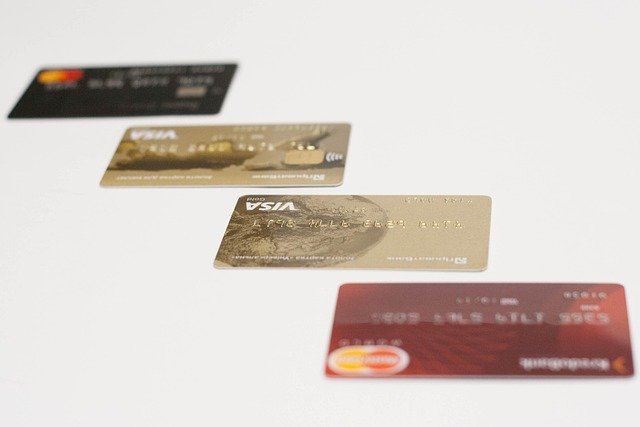Understanding Personal Loans and Credit Options: A Comprehensive Guide
Personal finance can be complex, but understanding your loan and credit options is crucial for making informed decisions. This article will explore various aspects of personal loans and credit offerings, providing you with the knowledge to navigate these financial tools effectively.

What are personal loans and how do they work?
Personal loans are a type of unsecured loan that individuals can borrow from banks, credit unions, or online lenders. Unlike secured loans, personal loans don’t require collateral. They typically have fixed interest rates and repayment terms, usually ranging from one to seven years. Borrowers receive a lump sum upfront and repay the loan in regular installments.
Personal loans can be used for various purposes, such as debt consolidation, home improvements, or unexpected expenses. The application process usually involves a credit check, income verification, and an assessment of your debt-to-income ratio.
How do credit card offers differ from personal loans?
Credit card offers and personal loans are both forms of credit, but they function differently. Credit cards provide a revolving line of credit, allowing you to borrow up to a certain limit and repay the balance over time. Interest is charged on unpaid balances, and minimum monthly payments are required.
Personal loans, on the other hand, provide a fixed amount of money upfront with a set repayment schedule. They often have lower interest rates than credit cards, making them a better choice for large, one-time expenses or debt consolidation.
What factors determine quick loan funding approval?
Quick loan funding can be crucial in emergency situations. Several factors influence the speed of loan approval:
-
Credit score: A higher credit score can lead to faster approvals.
-
Income and employment stability: Steady income improves your chances.
-
Debt-to-income ratio: Lower ratios are viewed more favorably.
-
Loan amount: Smaller loans may be approved more quickly.
-
Lender’s processes: Online lenders often offer faster approvals than traditional banks.
To increase your chances of quick approval, ensure you have all necessary documentation ready and consider pre-qualifying with multiple lenders.
How can you find and qualify for low interest loans?
Low interest loans can save you significant money over the life of the loan. To find and qualify for these loans:
-
Improve your credit score: Higher scores often qualify for lower rates.
-
Shop around: Compare offers from multiple lenders.
-
Consider secured loans: They often have lower rates but require collateral.
-
Look into credit unions: They sometimes offer lower rates than traditional banks.
-
Opt for shorter loan terms: Shorter terms typically have lower interest rates.
Remember that the lowest advertised rates are usually reserved for borrowers with excellent credit and strong financial profiles.
Are there viable options for bad credit loans?
While it can be challenging to secure loans with bad credit, options do exist:
-
Secured loans: Using collateral can help you qualify for better terms.
-
Co-signed loans: A co-signer with good credit can improve your chances.
-
Credit-builder loans: These help you build credit while borrowing.
-
Peer-to-peer lending: Some platforms cater to borrowers with lower credit scores.
-
Payday alternative loans: Offered by some credit unions, these are safer alternatives to payday loans.
Be cautious of predatory lenders targeting those with bad credit. Always read the terms carefully and understand the total cost of the loan.
How do personal loans and credit cards impact your credit score?
Both personal loans and credit cards can affect your credit score in several ways:
-
Payment history: Timely payments positively impact your score.
-
Credit utilization: Lower credit card balances relative to your limit can improve your score.
-
Credit mix: Having both installment loans and revolving credit can be beneficial.
-
Length of credit history: Longer credit histories generally help your score.
-
New credit inquiries: Multiple applications in a short time can temporarily lower your score.
Personal loans can sometimes help improve your credit score by diversifying your credit mix and potentially lowering your credit utilization ratio if used for debt consolidation.
| Loan Type | Provider | Interest Rate Range | Loan Amount Range |
|---|---|---|---|
| Personal Loan | SoFi | 7.99% - 23.43% APR | $5,000 - $100,000 |
| Credit Card | Chase Freedom Unlimited | 19.49% - 28.24% Variable APR | Credit limit varies |
| Bad Credit Loan | Avant | 9.95% - 35.99% APR | $2,000 - $35,000 |
| Quick Funding Loan | LightStream | 7.49% - 25.49% APR | $5,000 - $100,000 |
Prices, rates, or cost estimates mentioned in this article are based on the latest available information but may change over time. Independent research is advised before making financial decisions.
Understanding personal loans and credit options is essential for managing your finances effectively. Whether you’re looking for a low-interest personal loan, a credit card with attractive rewards, or options for bad credit, it’s crucial to compare offerings from multiple providers. Always consider the long-term impact of any borrowing decision on your financial health and credit score. By making informed choices, you can use these financial tools to your advantage while avoiding potential pitfalls.




